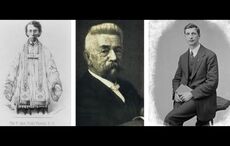CONDITIONAL PERMANENT RESIDENCE: THE CRUCIAL NEXT STEPS
Q: I received a green card valid for two years, based on my marriage to a US citizen. I see that the card is due to expire in a few months. What do I do now?
A: Your two-year permanent residence (as opposed to green cards good for ten years in other circumstances) is “conditional,” because you were married to your US citizen spouse for less than two years at the time when your legal permanent residence was granted. Now you and your spouse MUST jointly file Form I-751 with US Citizenship and Immigration Services (USCIS) during the three-month window before your current card expires, in order to “remove the condition” and obtain a green card with a ten-year validity period. Neglecting to file this application on time can have serious adverse consequences, including the loss of permanent resident status.
USCIS wants to see that you are still married and living with your spouse, and that you therefore still have a basis for permanent residence (and also that you do not have any possibly disqualifying issues such as criminal convictions). The kinds of evidence that you use to demonstrate the marriage relationship are essentially the same as at your original green card interview, except that this time you mail the evidence to USCIS along with the Form I-751. For example:
1. Birth certificates of any children born of the relationship, showing the applicant and spouse as the parents.
2. Copies of federal and state tax returns with the “married filing jointly” filing status.
3. Evidence of joint checking, savings, or other accounts or assets (certificates of deposit, stocks, bonds, mutual funds, retirement accounts, pension plans, etc.), or joint obligations on any loans.
4. Photo ID cards (such as driver’s licenses, school IDs, or amended passports) showing the couple’s joint address and, if relevant, the wife’s married name.
5. An apartment lease or a letter from the landlord indicating that both spouses live at the apartment, or copies of rent receipts showing both parties' names.
6. House or condominium deeds or mortgage documents showing joint tenancy and obligation.
7. Credit cards showing both spouses’ names on the accounts.
8. Documents from an employer showing a change in records to reflect the spouse's new marital status or showing designation of the spouse as the person to be notified in event of accident, sickness, or other emergency.
9. Evidence of life insurance policies where one spouse is named as the beneficiary of the other.
10. Evidence of one spouse’s medical or health insurance plan that has coverage for the other spouse.
11. Evidence of correspondence between the parties during their relationship, including letters, birthday and holiday cards, telephone calls, e-mails, and other correspondences addressed to the parties.
12. A religious marriage certificate if the couple was married in a religious ceremony, as well as evidence relating to the wedding such as invitations, arrangements for the reception, etc.
13. Copies of gas, electric, telephone, cable, and other utility bills showing both parties’ names (or at least the same mailing address).
14. Evidence of joint ownership of an automobile (title, insurance, registration, financing). If one spouse owns the car, show at least that the other is covered as a driver on the insurance policy.
15. Evidence of vacations and other trips taken together, including airline tickets and hotel bills.
16. Evidence of major purchases made together, such as computers, audio equipment, television, refrigerator, washer, dryer etc., including any financing documents.
17. Photographs that show both spouses together, and with family and friends. These can be taken at the wedding, at other functions or events, and throughout their relationship.
18. Two sworn affidavits from people who know the spouses as a married couple and who can briefly describe their relationship with them. These can be relatives, close friends, employers and others, preferably US citizens.
No one has all the evidence listed above, but every couple has at least some of it. The point is to submit everything that fits your particular situation, so as to avoid having your application held up if USCIS asks for further information.
Note that in some circumstances you can file this petition without your spouse if, for example, you are now divorced or if you are a victim of domestic violence. In these circumstances, you are required to show that you had a “good faith” marriage, among other things.
IIIC can assist you with the I-751 form and affidavits and help you to evaluate whether your marriage evidence documentation is sufficient. Also, if there are any criminal offenses since you were granted conditional permanent residence, it is essential that you consult with an immigration lawyer before filing. Visit one of IIIC’s weekly clinics advertised in the Emigrant for a free, confidential consultation about this or any other immigration law issue.
Disclaimer: These articles are published to inform generally, not to advise in individual cases. US Citizenship and Immigration Services and the US Department of State frequently amend regulations and alter processing and filing procedures. For legal advice seek the assistance of IIIC immigration legal staff.
Irish Foreign Minister and Ambassador Visit the IIIC
Minister of Foreign Affairs and Trade, Charlie Flanagan T.D., along with Ambassador to the U.S., Anne Anderson, visited the Irish International Immigrant Center (IIIC) on October 1st. Consul General Breandán Ó Caollaí and Vice-Consul Jillian O’Keeffe accompanied them.
Our guests had an opportunity to meet IIIC staff and Board members and received an overview of our services for Irish citizens living in Massachusetts. The Minister expressed his gratitude for the work of the IIIC on behalf of the Irish Government, which recently announced its continued financial support of the Center in 2015.
Minister Flanagan and Ambassador Anderson were in Washington, D.C. the day prior to their visit advocating on behalf of Irish immigrants in meetings with Vice-President Joe Biden, Secretary of State John Kerry, and other Obama administration officials.
The IIIC is extremely grateful for the continuing support of the Irish Government and the opportunity to meet with Cabinet Minister Flanagan and Ambassador Anderson.
Northeastern Intern Helping Irish Interns
The Learning Exchange Programs has been lucky to have Cara Henderson, Northeastern Co-op student, working in our office since July. She is involved in all aspects of the J-1 Irish Work and Travel program, from answering queries, to reviewing resumes, to meeting with J-1 interns, and everything in between!
Originally from Westwood, MA, Cara is currently in her last year at Northeastern University, where she studies international affairs and communications. Apart from school, she is busy with her sorority, Kappa Kappa Gamma, as well as performing with Northeastern’s NuStage Musical Theater Company.
“My mother is originally from Galway, and I have always enjoyed Ireland and its culture,” Cara says. “I am very happy to have this co-op internship and to be part of a program that helps Irish graduates gain incredibly valuable work experience.”
U.S. Citizenship Classes Begin
The Irish International Immigrant Center (IIIC) is pleased to announce the beginning its six week Citizenship Classes on Thursday, November 6th. The two-hour classes are offered twice on Thursdays in the afternoon at 1:00 PM and again in the evening at 6:00 PM.
The course covers all of the 100 naturalization test questions and writing sample requirements. Students will gain a deeper understanding of the principles of U.S. history and civics. The entire citizenship application process is covered including the naturalization interview. If necessary, IIIC citizenship specialists and immigration attorneys are available to answer any questions.
Course materials are provided and the requested class fee is $30.00.
For more information and to register for a class, contact Sarah at 617-542-7654, Ext. 36. You may also visit the IIIC Downtown Crossing office between 9:00 AM and 5:00 PM.
Made possible by the Massachusetts Office for Refugees and Immigrants and the Greater Boston Citizenship Initiative sponsored by the Fish Family Foundation.
Quote of the Week
“Now Autumn's fire burns slowly along the woods
And day by day the dead leaves fall and melt.” - William Allingham, Irish poet




Comments